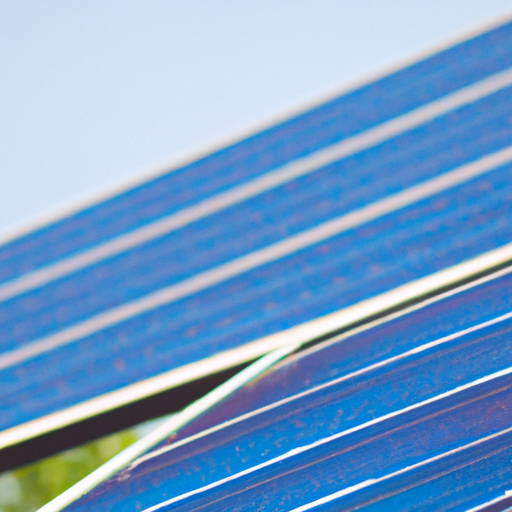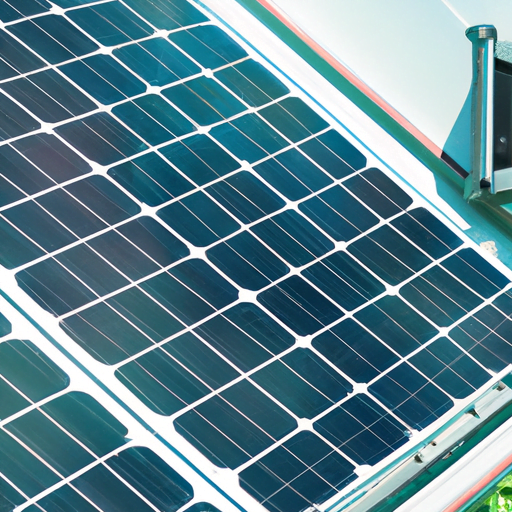Have you ever wondered if it’s legal to live off-grid in Australia? Living off-grid refers to the practice of living without reliance on public utilities, such as electricity and water, and instead generating your own power and collecting your own water. It’s a lifestyle that appeals to those seeking self-sufficiency and sustainability. However, the legality of off-grid living can vary from country to country and even within different regions. In this article, we will delve into the legality of off-grid living in Australia and explore the regulations and considerations involved.
Living off-grid in Australia is generally legal, as long as certain conditions are met. Each state and territory in Australia has their own regulations and policies regarding off-grid living, which means it’s crucial to do thorough research and ensure compliance with the specific laws of the area you plan to live in. Some considerations to keep in mind include obtaining the necessary permits and approvals for building structures, ensuring compliance with health and safety regulations, and adhering to environmentally sustainable practices.
By living off-grid, you can have greater control over your energy consumption and reduce your environmental footprint. However, it’s important to note that off-grid living may not be suitable for everyone. It requires careful planning, research, and understanding of the regulations in your area. In the upcoming sections, we will delve deeper into the legal considerations, environmental advantages, and potential challenges of off-grid living in Australia. So, if you’re curious about exploring a more sustainable and self-sufficient lifestyle, keep reading to learn more about the legality of off-grid living in Australia.

Exploring the Legality of Off-Grid Living in Australia
Living off-grid has become a popular choice for those seeking a more sustainable and self-reliant lifestyle. However, before making the decision to embark on this alternative way of living, it is essential to understand the legal considerations involved. In Australia, while off-grid living is possible, there are certain regulations and requirements that individuals need to be aware of in order to ensure their actions are within the boundaries of the law.
Understanding the Concept of Off-Grid Living
Off-grid living refers to a lifestyle in which individuals or communities are completely self-sufficient and independent from public utilities such as water, electricity, and sewage systems. Instead, they generate their own power, collect rainwater, and manage waste through sustainable methods. This lifestyle choice is often driven by the desire to reduce environmental impact and achieve a higher level of personal freedom and sustainability.
Legal Considerations for Living Off-Grid in Australia
Living off-grid in Australia is generally legal, but it is important to be aware of the specific laws and regulations that may apply to your situation. These can vary depending on the state or territory you reside in, as well as the local council regulations within that area. It is crucial to thoroughly research and understand the legal requirements before beginning your off-grid journey.
Zoning Laws and Building Regulations
One of the key legal considerations for off-grid living in Australia is zoning laws and building regulations. Each state and territory has its own specific planning and building codes that need to be followed when constructing or refurbishing a property. It is important to ensure that your plans comply with the regulations in your area. Failure to do so could result in fines or other legal consequences.
Permits and Licenses for Off-Grid Living
Depending on the nature and scale of your off-grid project, you may need to obtain permits and licenses to ensure compliance with Australian regulations. For example, if you are intending to install solar panels or wind turbines to generate electricity, you may need to obtain approval from your local council or energy provider. Similarly, if you are planning to construct additional buildings on your property, you may need to obtain building permits. It is crucial to research and obtain the necessary documentation to avoid any legal issues.
Environmental Regulations and Sustainability
Another important aspect of off-grid living is adhering to environmental regulations and promoting sustainability. In Australia, there are strict environmental regulations in place to protect the natural ecosystem. These regulations may include restrictions on land clearing, water usage, and waste management. It is essential to ensure that your off-grid lifestyle is in line with these regulations and that you adopt sustainable practices such as proper waste disposal and conservation of resources.
Water and Sewage Systems
Ensuring a reliable water supply and managing sewage systems are crucial aspects of off-grid living. In Australia, water rights and regulations can vary depending on your location. It is important to research and understand the rules regarding rainwater collection, bore water usage, and storage tanks. Additionally, managing sewage and waste disposal systems in an eco-friendly and compliant manner is vital. Understanding and implementing proper techniques such as waterless composting toilets or septic tanks is essential to meet legal requirements.
Energy Generation and Storage
Generating and storing your own energy is a fundamental aspect of off-grid living. In Australia, renewable energy sources such as solar power and wind turbines are common methods used by off-grid individuals and communities. However, it is crucial to ensure that your energy generation systems comply with Australian standards and regulations. This may involve obtaining grid-connect approvals or adhering to specific installation guidelines. It is important to consult with professionals who are well-versed in off-grid energy systems to ensure compliance and safety.
Waste Management and Disposal
Off-grid living often involves managing waste in a responsible and sustainable manner. This may include composting organic waste, recycling materials, and reducing overall waste production. Understanding and adhering to waste management regulations in your area is essential. Some local councils may have specific guidelines regarding recycling and waste disposal, and it is important to follow these regulations to avoid any legal issues.
Community and Social Considerations
Living off the grid can sometimes affect the surrounding community and may raise concerns among neighbors. It is important to be respectful and considerate of others when choosing to live off-grid. Engaging in open dialogue with your neighbors, explaining your plans, and addressing any potential concerns can help foster positive relationships and minimize any potential legal conflicts.
Conclusion
Living off-grid in Australia is indeed a legal and viable lifestyle choice that offers numerous benefits, but it is crucial to understand and adhere to the legal considerations involved. Zoning laws, building regulations, permits and licenses, environmental regulations, water and sewage systems, energy generation and storage, waste management, and social considerations all play an important role in ensuring a legally compliant off-grid lifestyle. Thorough research, consultation with professionals, and open communication with the local community are all essential steps to successfully navigate the legal landscape of off-grid living in Australia. By doing so, you can enjoy a sustainable, self-reliant, and legally sound lifestyle in harmony with the environment and local regulations.





